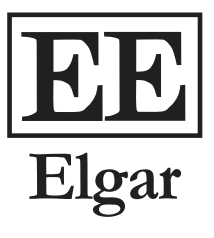
Here is a short(-ish) answer: Feminist economics calls for inclusive inquiry in terms of both topics studied and who studies them. It turns a critical and gender-aware eye on the field of economics, as well as on how real world economies function. It attends to understudied topics, often those considered “feminine” topics, such as how households operate internally. It considers how standard economics is not truly objective, showing how standard economic models and methods may be biased towards masculine-focused outcomes. It emphasizes human and systems interconnectivity rather than independence, and reminds us that economics is about both efficiency and equity, where equity and the distributional effects of economic policies are often less emphasized by economists than their efficiency. It questions the traditional divide between positive (what is) and normative (what should be) in economics without foregoing objectivity. Feminist critiques of economics serve in large part to rehumanize economics as a field and remind us that answers, if they are to questions that have become devoid of meaning, are not really answers after all.
The longer answer to the question of what is feminist economics is formed by surveying the various topics to which feminist economists have turned their attention, seeing how they approach those topics and how what they have found in doing so is often at variance from what other economists would have done. That is what my recent book, Advanced Introduction to Feminist Economics does, beginning with a survey of the field’s roots and antecedents.
Drawing a differentiation between the economics of gender and feminist economics is crucial (and a distinction I care about, having written an earlier book titled The Economics of Gender). The economics of gender is about how gender differences lead to different economic outcomes, as encapsulated in terms of such standard economic measures as earnings, income, wealth, poverty rates, hours of work, and time use. Feminist economics is a much broader intellectual project that encompasses this concern and these measures, but also considers how economics, both as a field and as a body of theory and methodology, has been shaped by those who have chosen to work in it, which historically and currently are mostly men.
While feminist economic thinking has mostly developed within the most recent quarter-century, it has strong roots in the British and US social reform and political economy movements of the late 19th and early 20th century. In the UK, John Stuart Mill and Harriet Taylor Mill, Millicent and Henry Fawcett, Beatrice and Sidney Webb, and others wrote about and campaigned for women’s rights and workers’ rights. In the US, Jane Addams, Sophonisba Breckinridge, and Edith Abbott moved fluidly between social work and suffrage, and also bridged the intellectual traditions of economics, political economy, and sociology. These writers linked their activism to their research and writing, calling attention to the inequities in both industrial and domestic life between women and men, but also documenting the extensive nature of women’s involvement in paid work. This focus on gendered power differentials and the ensuing inequality of gendered outcomes persisted through the granting of US women’s suffrage in 1920, the progressive era of the 1920s, and into the modern era of feminist economics. Feminist economics also has antecedents in the first and second waves of popular and academic feminism in the 1960s through the 1980s, and then came into full fruition starting in the 1990s.
While there have been numerous currents of dissent regarding the status quo in economics since its beginnings in political economy, feminist concerns were not heavily raised in the economics profession until the early 1970s. As an outcome of some of these concerns, the American Economic Association’s (AEA) standing committee, Committee on the Status of Women in the Economics Profession (CSWEP), was founded in 1971, and several of the first members of that committee worked specifically on women’s issues. CSWEP did not (and still does not) espouse specifically feminist views regarding the content of economics; instead, it focusses on aiding women economists to achieve more standing in the profession and increasing their numbers, along with sponsoring more research on the economics of gender. Thus, it was not until 1990, at an AEA session on “Can Feminism Find a Home in Economics?” that, as the International Association for Feminist Economics (IAFFE) website states, “women economists found each other to discuss the difficulties in doing feminist work and their desire for conversation with like-minded economists” (http://www.iaffe.org/pages/about-iaffe/history/).
As an outgrowth of those meetings and the subsequent mailing list that was formed, thirty-one founding members (including me) came on board by the end of 1991, and IAFFE was formally incorporated in 1992. IAFFE’s first annual summer conference was held in 1992 at American University, Washington, DC. A newsletter, a listserv (femecon-l, later iaffe-l), and eventually a website were developed as well. IAFFE’s journal, Feminist Economics, began publication in 1995 and serves as the primary location for peer-reviewed publications in this field.
The importance of formal organizations for field development should not be underestimated. Organization—such as the naming of a disciplinary subfield or interdisciplinary program, and then the founding of a related learned society devoted to the named object—allows for a society-sponsored journal and other publications, for regular conferences sponsored by the society, for leadership positions in the society, for representation in convocations of learned societies, and for a voice in the wider profession as well as in academia and even the general public. These venues create and encourage career-building opportunities: presentation and publication of papers; creation of edited volumes; networking; refereeing and reviewing of other’s work; the holding of organizational offices and thus the ability to shape the future of organizations. And here is both a feminist and a humanist thought: organizations can create community and foster important linkages that further both humanity and learning.

Advanced Introduction to Feminist Economics
Joyce P. Jacobsen, Hobart and William Smith Colleges, US
Request an online examination copy here.


Leave a Reply